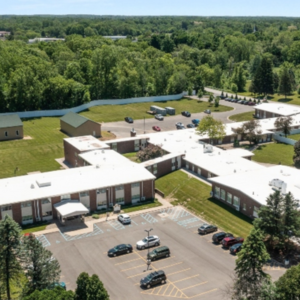What’s the Connection of ADHD and Substance Use?
Individuals with attention-deficit/hyperactivity disorder (ADHD) are more likely to use substances as a way to cope with their symptoms, such as impulsivity and hyperactivity. There is also some evidence that ADHD medications may reduce the risk of developing problematic substance use behaviors, making ADHD treatment a critical part of preventing or managing substance use in individuals with ADHD.
However, for many people with ADHD, these symptoms are either untreated or inadequately treated, which can contribute to the risk of developing substance use issues. Stanford Behavioral Health offers a mental health treatment program for ADHD, which can help individuals overcome the symptoms of ADHD and reduce their risk of developing problematic substance use behaviors. Contact Sanford Behavioral Health today to learn more about our ADHD treatment program and how we can help you or your loved ones manage symptoms of ADHD and prevent the development of harmful substance use behaviors.
The Connection Between ADHD and Substance Use
A new study by lead author Esme Fuller-Thomas, Ph.D., a professor at the University of Toronto, documents the connection between ADHD and substance use disorder (SUD) among young adults (ages 20 to 39). The study also sought to investigate the impact of socio-demographics, childhood adversities, and mental health issues on this population.
“Young adults with ADHD have a high prevalence of alcohol and other SUDs. Targeted outreach and interventions for this extremely vulnerable population are warranted.”–Canadian Nationally Representative Survey, Fuller-Thomas, Lewis, Agbeyaka, et al.
The Correlation Between ADHD and Substance Use Disorders
The findings? Half of the young adults with ADHD have experienced a SUD in their lifetime. Controlling for a lifetime of anxiety and depression, however, lessens the relationship. This led researchers to conclude that it is important to address anxiety and depression when treating those with co-occurring ADHD and SUD. Those with untreated anxiety often self-medicate to manage mental health symptoms, which can lead to increased substance use. Fuller-Thomas says, “There is a clear need to develop prevention and treatment programs to address substance use issues among those with ADHD. While also promoting mental health and addressing childhood adversities.”
There is a correlation between ADHD and substance use disorders—we have known that for a long time. In fact, there is a saying among psychiatrists—you’re bound to become an addictionologist if you work with young people with ADHD. At Sanford, no less than half of our patients with ADHD have a dual diagnosis of substance use disorder. It’s often more like 80%.”–Gilbert Al Masterson, M.D. Chief Medical Officer, Sanford Behavioral Health
Whether you have ADHD or not, the risk of developing a substance use disorder is high for those exposed to stress and anxiety. For many young people with ADHD, hyperactivity and impulsivity can lead them to engage in risky behaviors such as substance use. Treatment for ADHD can help to manage symptoms of this condition.
What Happens with Untreated ADHD and Substance Abuse
When living with untreated ADHD and substance use, the consequences can be dire. Unfortunately, for far too many individuals living in this situation, the health risks and psychological implications often go unrecognized. Inadequate mental health support and an increase in harmful substances quickly lead to a road of self-destruction from problems such as risky behavior and impulsive actions, which can lead to more significant turmoil.
It is essential for people living with untreated ADHD and substance abuse to receive proper care so that they can begin living sober. Whether it’s seeking out therapy, support groups, or programs specifically tailored to these issues, there are numerous resources available to promote living sober and healthier lives.
Understanding ADHD and Substance Abuse Treatment
Understanding the relationship between ADHD and substance use treatment can be difficult for individuals living with either or both conditions. Despite the challenge, recognizing this link is crucial to establishing effective treatment plans, improving quality of life, and promoting sober living. Several studies have found that over 50% of individuals with ADHD have struggled with illicit drugs or alcohol use at some point in their lives. Additionally, those living with post-traumatic stress disorder (PTSD) are twice as likely to misuse drugs or alcohol. Seeking out treatment for ADHD and substance use helps with the following:
- Managing ADHD symptoms
- Addressing co-occurring mental health conditions, such as depression and anxiety
- Tackling addiction issues and substance use
When in treatment, a person can expect to learn effective coping strategies to help manage ADHD symptoms and deal with other mental health issues, work through past traumas, and address addiction concerns. Through holistic therapy approaches such as cognitive-behavioral therapy (CBT) and dialectical behavior therapy (DBT), individuals can learn new skills to promote healthier, sober living. Through education and awareness on this issue, the public can work together to create pathways towards successful treatment options for those living with ADHD and substance use issues.
Get Help from Sanford Behavioral Health for ADHD and Substance Use
If you believe you could benefit from ADHD and substance use treatment, reach out to the team at Sanford Behavioral Health. Our dedicated psychiatrists, therapists, and other care providers are here to help you on your path toward sobriety and wellness. Sanford Behavioral Health offers comprehensive treatment programs that address ADHD, substance use, and co-occurring disorders. You don’t have to struggle with ADHD and substance use alone—contact us today at 616.202.3326 to learn more about our treatment options.




